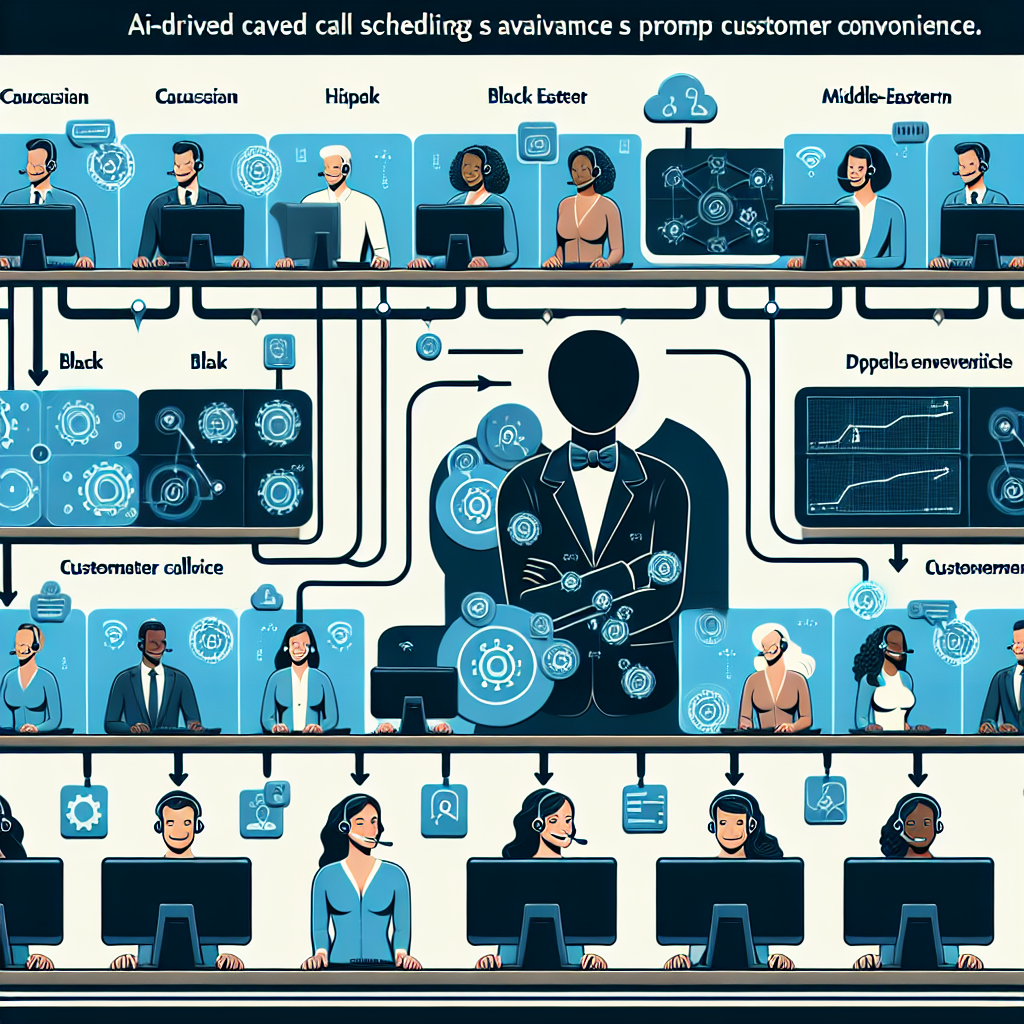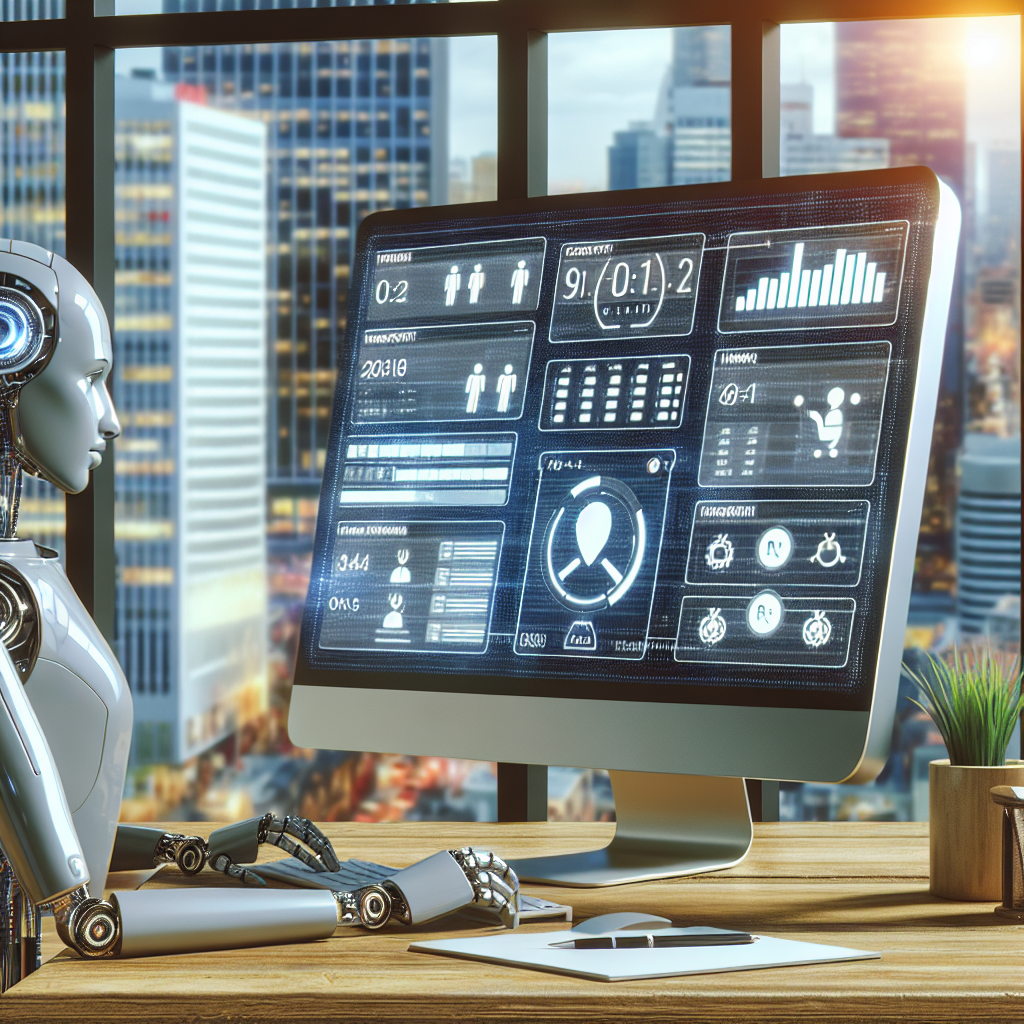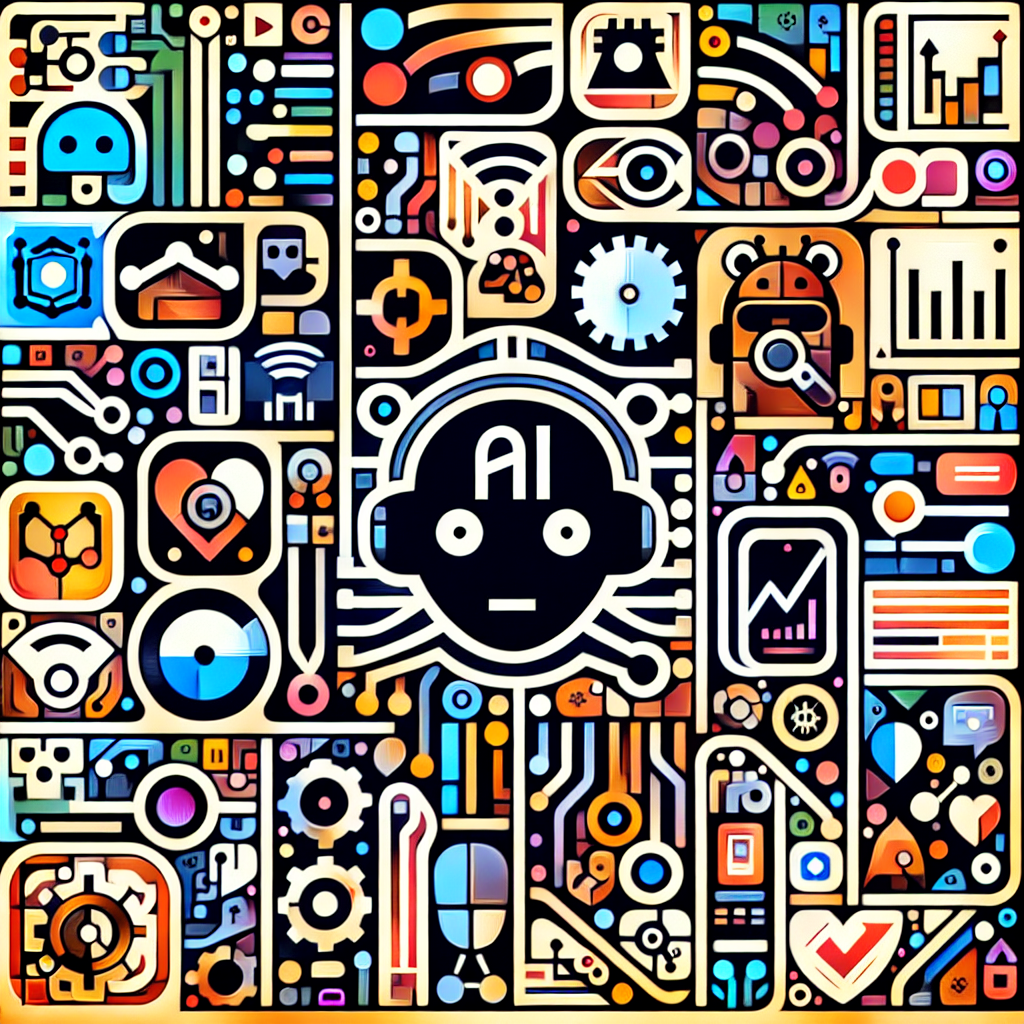
In the continuously evolving landscape of customer service, keeping pace with customer needs and expectations is more than necessary. Here, AI-driven call scheduling is becoming a game-changer. This innovative technology is not just optimizing agent availability but also drastically enhancing customer convenience.

AI-driven call scheduling uses advanced Artificial Intelligence (AI) algorithms to manage and distribute inbound and outbound call tasks, thereby ensuring balanced workload among agents and minimal waiting time for customers. This is a paradigm shift from traditional manual scheduling, eliminating human errors, favoritism, and inefficiencies, while also being capable of adapting to unexpected changes in call volumes and agent availability.
Apart from optimizing agent availability, this smart technology offers benefits such as automated shift-fill, predictive scheduling based on call patterns, and real-time flexibility. As a consequence, it leads to improved agent morale, lower attrition, and a higher level of customer satisfaction. Unlike other scheduling tools, AI-driven call scheduling learns from past data to make precision predictions and adjustments.
In the customer-centric era, an immediate and satisfactory response can make or break a customer's relationship with your business. Hence, the role of AI in customer service is becoming more significant every day. It's time companies fully harness the potential of AI-driven call scheduling to deliver the best-in-class customer service.
In conclusion, by synchronizing agent availability and customer needs, AI-driven call scheduling presents a win-win scenario for both customers and agents. It signifies the future of customer service – a future led by AI, optimized by efficiency, and driven by customer satisfaction.
In today's fast-paced and digital business landscape, customer service centers act as the frontline of corporations. With multiple channels of communication, the role of an efficient customer service agent is pivotal. Here, Artificial Intelligence (AI) surfacing out as an effective tool could streamline the functioning of these hubs. AI-driven call scheduling, particularly, can optimize agent availability, reducing burnout and significantly enhancing productivity.
One of the primary advantages of smart call scheduling is that it can create optimal agent schedules, ensuring that agents are not overloaded with work. It accomplishes this by leveraging machine learning algorithms to analyze call history data and accordingly predict future call volumes. As a result, agents can manage their tasks efficiently within the time constraints, leading to a drop in stress and a boost in job satisfaction.
Aside from personalized rostering, AI scheduling algorithms improve the overall organizational productivity. It does this by effectively reducing the idle time of agents and matching callers with agents according to the context and complexity of the issue at hand. This ensures a smoother and quicker resolution process, increasing the customer satisfaction rates.
Apart from the task management, AI-driven call scheduling also considerably enhances the quality of call handling. It can direct a customer query to the most suitable agent based on previous interactions, areas of expertise, or even language proficiency. This not only speeds up the resolution process but also ensures that customers receive accurate and quality assistance.
To conclude, AI-Driven Call Scheduling is a potent tool that effectively optimizes agent workload, helps in evasion of burnout events, and fosters a highly productive environment. It brings a wave of convenience for both agents and customers alike, reinforcing the belief that the advent of AI in customer service is truly revolutionary.
In the ultra-competitive business landscape, carving out a niche for oneself often leans heavily on providing top-notch customer service. So, how can businesses improve customer service? The answer could lie in leveraging technology, particularly AI-Driven Call Scheduling.
Customer service centers often find themselves entangled in maintaining the delicate balance of agent availability and customer convenience. AI-Driven Call Scheduling or artificial intelligence driven software can optimize this equation, providing customers with quicker responses and more satisfactory interaction experiences.

Equipped with an advanced analytical ability, AI-driven call scheduling platforms can predict call volumes and allocate agents accordingly, ensuring that customers are not kept waiting. The AI also helps in routing calls to the most suitable agent based on the customer’s history and query type. These innovative platforms also incorporate predictive analytics to anticipate future call demand over different time bands, further streamlining the capacity planning process.
For instance, Aspire’s Workforce Scheduling Engine harnesses smart routing algorithms and robust forecasting models to drive more balanced and effervescent call center operations. It endeavors to match the right agent with the right customer at the right time, thereby improving the overall customer experience.
Transitioning to an AI-driven approach for call scheduling can revolutionize the way businesses operate their customer service centers. This model ensures that all call tickets are addressed in an organized and timely manner, thereby reducing customers’ frustration. Furthermore, the intelligent allocation of agents enhances their productivity and reduces their burnout levels, escalating overall team effectiveness and the quality of customer interactions.
So, with AI-driven call scheduling, companies can truly ensure that their customers are always treated as a priority, enhancing their brand image and fostering customer loyalty in the long run.
The adoption of AI-driven call scheduling in the world of customer service has been growing exponentially as businesses aim to streamline their operations and improve customer satisfaction. The seamless integration of these technologies in existing call centers and Enterprise Resource Planning (ERP) systems has been a key factor in their widespread acceptance.
What sets the AI-driven scheduling solutions apart from traditional methods is their capability to learn and adapt. Unlike fixed rules set up by developers, an AI scheduling engine can be programmed to educate itself about call patterns, agent availability, and customer behaviour, and make predictions accordingly. This sophisticated form of machine learning is used to forecast agent availability and customer convenience, and schedule calls at the optimal time.
The provision to easily integrate with existing systems has made the transition to AI-powered call scheduling smoother for businesses. The AI can be added to existing phone systems, customer relationship management (CRM) systems, or other ERP systems in use by the company. Through APIs and pre-built connectors, businesses can get this enhancement live and working in a short period.
Most of these AI scheduling solutions are compatible with a multitude of systems. Whether your business is using on-premise VoIP switches, cloud-based call center solutions, or an array of different ERPs, these AI systems can easily be integrated without disrupting your current operations.
Furthermore, the integration process itself can be customized to a company's specific needs. Factors such as time zone, language preferences, business hours, agent skill sets, and many more can be configured, enabling businesses to optimize their call operations while still providing a high level of customer convenience.
In conclusion, the seamless integration of AI-driven scheduling with existing systems not only optimizes the agent availability but also significantly improves the customer's overall experience. To stay competitive in this digital age, businesses must adopt and continuously upgrade their systems with technologies like Artificial Intelligence.
AI-driven call scheduling has already proven beneficial for many successful businesses. In this section, we will look at few real-world examples of businesses that have experienced tangible benefits from successfully implementing this cutting-edge technology.

IBM implemented AI-driven call scheduling to optimize their customer service operations. It not only increased the efficiency of their operation but also improved the customer experience by reducing hold time by 40% and improving first call resolution by 35%. This resulted in a rise in customer satisfaction and retention rates.
SYKES, a leading global business process outsourcing (BPO) provider, also discovered AI's value. They used it to schedule calls, ensuring that agents are available at high-demand periods. The resulting uplift in productivity was a privilege of the past, thereby providing a 10% gain in agent efficiency and a welcomed boost in the bottom line.
Furthermore, Santander UK embraces the AI trend in revolutionizing their call center operations. The bank saw an impressive 20% reduction in average handling time and a 15% drop in repeat calls. Notably, their Net Promoter Score (NPS) also increased, signifying a more satisfied and loyal customer base.
These case studies conclusively demonstrate the potential of AI-driven call scheduling tools to optimize agent availability and enhance customer convenience. By integrating these intelligent systems, businesses can gain a competitive edge and deliver unparalleled customer service.
As Artificial Intelligence (AI) continues to evolve, one of the most transformative areas of impact will indisputably be in call center scheduling. The fusion of AI and automation with call scheduling optimizes not just the efficiency and productivity of agents, but substantially enhances customer convenience as well.
AI-driven call scheduling solutions like Automatic Call Distribution systems have revolutionized the contact center landscape. These technologies can predict call volumes, identify peak times, and allocate staff resources accordingly. Tomorrow's AI call schedulers will, however, go much further.
Predictions suggest that future iterations of AI-driven call scheduling will offer real-time predictive analytics. Call volumes, durations, and outcomes will be accurately anticipated, enabling agents to be more fully prepared and ensuring customer wait times are minimized. Real-time analytics help in delivering a more personalized customer experience, by fetching relevant customer data before the start of the call.
Another game-changing feature expected to arise is the concept of 'Self-learning' systems. These self-adaptive AI systems would continually learn from their scheduling successes and failures, fine-tuning their algorithms to improve over time. They would automatically adapt to changes in call center operations and customer behavior, ensuring optimal scheduling and workload distribution at all times.
A further significant development is the integration of AI schedulers with other AI-powered tools, such as CRM software, sales enablement platforms, or automated chatbots. This integration will not only result in more synchronized operations but the data collected can inform better, more strategic decisions about staffing and scheduling.
AI-driven call scheduling is a rapidly maturing field. While we can speculate on the possibilities, the future of AI in call centers might outstrip our expectations. This blend of AI and automation promises a more efficient, customer-centric future, with maximized agent availability and unprecedented customer convenience.
Start your free trial for My AI Front Desk today, it takes minutes to setup!








